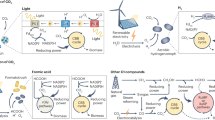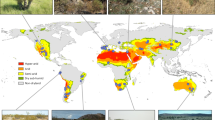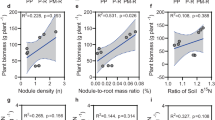Abstract
TAXONOMISTS have used the composition of the soluble carbohydrate fraction of grass seeds in the biochemical differentiation of grass species1,2. Sucrose is usually the most abundant sugar, but the presence of the raffinose group in the seeds of certain temperate species of grasses and legumes has been established. McLeod2 found raffinose and stachyose in the seeds of Brachypodium spp. whereas Bromus spp. contained neither, and of twenty-two temperate species of Gramineae examined she found raffinose in 70 per cent and stachyose in 45 per cent.
This is a preview of subscription content, access via your institution
Access options
Subscribe to this journal
Receive 51 print issues and online access
$199.00 per year
only $3.90 per issue
Buy this article
- Purchase on Springer Link
- Instant access to full article PDF
Prices may be subject to local taxes which are calculated during checkout
Similar content being viewed by others
References
de Cugnac, A., Ann. Sci. Nat. Bot., 13, 1 (1931).
McLeod, A. M., and McCorquodale, H., New Phytol., 57, 168 (1958).
Author information
Authors and Affiliations
Rights and permissions
About this article
Cite this article
LEHMANN, K., MCILROY, R. Soluble Carbohydrates in the Seeds of Tropical Pasture Species. Nature 216, 1044–1045 (1967). https://doi.org/10.1038/2161044a0
Received:
Published:
Issue Date:
DOI: https://doi.org/10.1038/2161044a0
Comments
By submitting a comment you agree to abide by our Terms and Community Guidelines. If you find something abusive or that does not comply with our terms or guidelines please flag it as inappropriate.



